Sloetia elongata (Miq.) Koord.
| Etymology | Genus | Unknown |
|---|---|---|
| Species | Elongated; referring to the flower spikes | |
| Family | Moraceae | |
| Synonyms | Streblus elongatus (Miq.) Corner, Artocarpus elongatus Miq. | |
| Common Names | Tampines Tree, Tempinis, Tamping, Kepinis | |
| Status | Native: Least Concern | |
| Form | Tree | |
| Native Distribution | Nicobar Islands, Sumatra, Borneo, Malay Peninsula, Singapore, Sulawesi | |
Diagnostics:
A bushy evergreen tree that can grow up to 35 m in height. Leaves are oblong-elliptic, tipped, thinly leathery and have a distinct, unequal base. Flowers occur in hanging green spikes.
Interesting Facts:
The town Tampines is named after this tree, which was abundant in the area. The earliest record was in a 1828 map of Singapore for Tampenus River, now Sungei Tampines (Cornelius-Takahama & Soundararajan, 2020). The wood is known as a hard and durable timber. In the Singapore Botanic Gardens, the tall slender pillars supporting Burkill Hall, the last standing Anglo-Malayan plantation-style house, were each originally made from a single trunk of the Tampines Tree (Ruth, 2004).
The ripe fruits are sweet and are eaten by squirrels, monkeys and birds (Corner, 1997). When the fruit is squeezed, the seeds are ejected out for a distance, aiding in its dispersal.
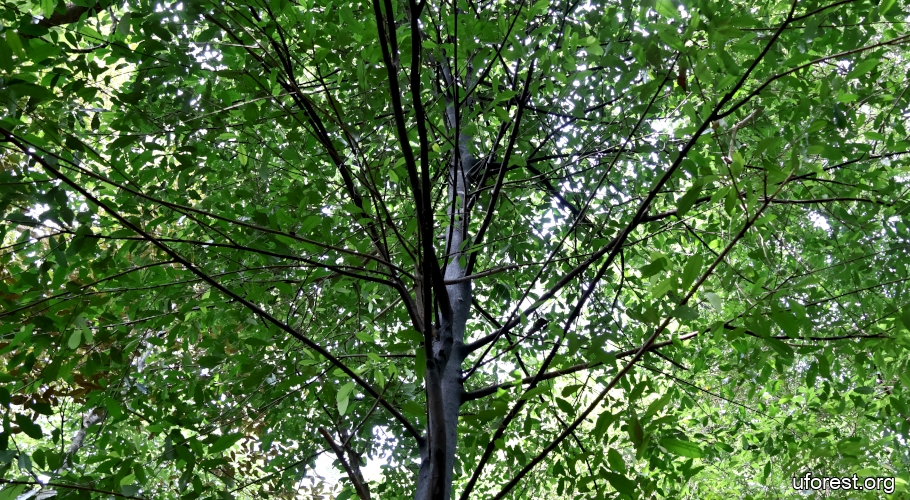
Branching of a young tree at Bukit Timah (2025).
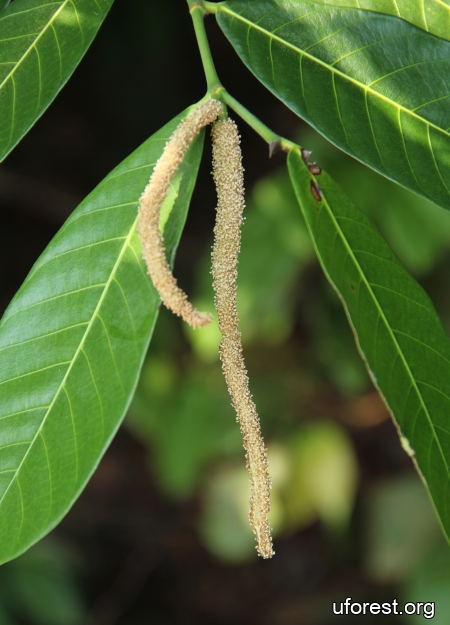
Flowering spike, showing on the male flower.
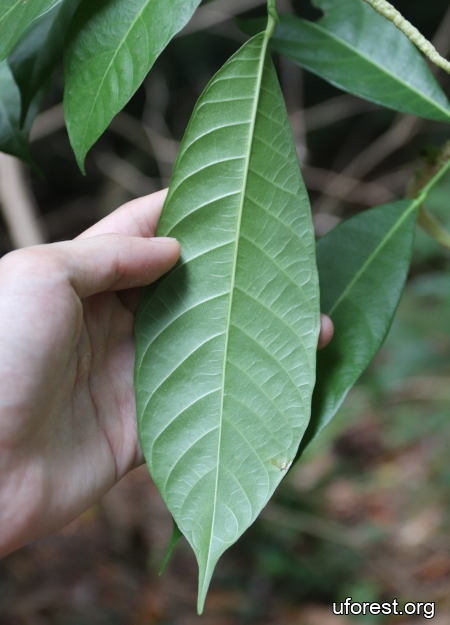
Leaf underside.
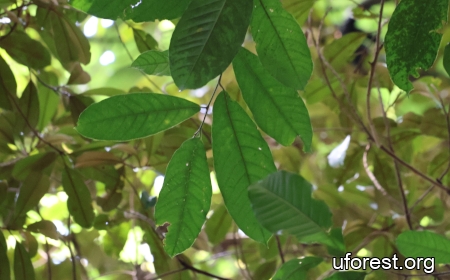
Leaf and branching.
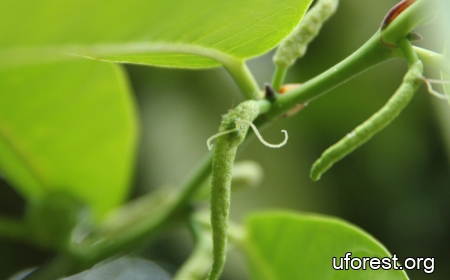
Female flower, with the obvious long styles.
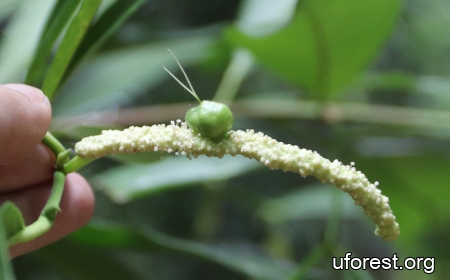
Developing fruit.
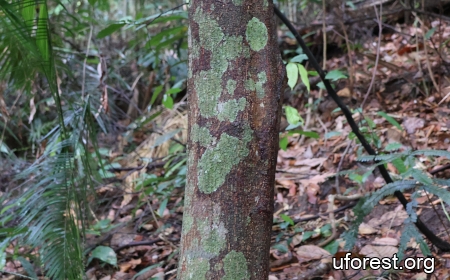
Bark.
References
Corner E. J. H. (1997) Wayside Trees of Malaya. Volume 2. 4th edition. The Malaysian Nature Society, Kuala Lumpur. 297 pp.
Cornelius-Takahama, V., & Soundararajan, A. (2020). Tampines. Singapore Infopedia. National Library Board. https://www.nlb.gov.sg. Accessed on 2025-Oct-20.
Ruth K. (2004) The Burkills of the Burkill Hall: Burkill Hall. Gardenwise, 23, p 17.
Author: Siyang
Posted: 2025-10-20 / Modified: 2025-10-27